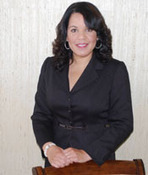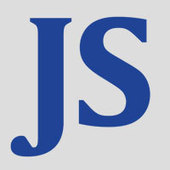By Donald Cohen
"Did you know that one of the fastest growing sectors of the charter school industry are ‘virtual’ charter schools, where K-12 students learn from home in front of their computers? No school buildings, no recess with friends, no shared learning. It’s true. The largest virtual charter company, a publicly traded corporation called K12, Inc., provides education to over 120,000 public school students across the country. Last year, they made more than $900 million in revenue, most of it taxpayer money earmarked for public education.
But virtual charters are starting to pile up bad news and serious questions about their priorities.
A study released last week by the Center for Research on Education Outcomes (CREDO) found that students attending virtual charters learn significantly less in math and reading than similar students attending brick-and-mortar schools. So significantly less that the Washington Post’s Lyndsey Layton wrote, “In other words, when it comes to math, it’s as if the [online] students did not attend school at all.”
This week, news broke that California’s Attorney General is investigating the entire virtual charter industry. And for good reason. Earlier this year, we looked under the hood of California Virtual Academies (CAVA), the state’s largest provider of online public education, and what we found was clear: CAVA’s manager and primary vendor, a subsidiary of K12 Inc., has put their responsibility to maximize profits for shareholders above investing in educating children.
Virtual charters are starting to pile up bad news and serious questions about their priorities.
While the overall percentage of U.S. students who attend online schools is small, in some states—like California, where CAVA teachers are organizing to serve students and families, not corporations—online education has become yet another path towards the privatization of public education. Online charters are a significant issue in Pennsylvania’s ongoing budget standoff between legislative leaders and the governor, as the state has the second-highest online enrollment in the country.
An increasing number of charter schools are using ‘blended learning’ models, where students go to school but spend lots of time in front of keyboards and screens. A former executive of the charter school chain Rocketship—which is one of the largest users of online learning—called blended learning “stripped-down efficiency model.”
Along with a growing crowd, we have concerns about an overreliance on technology in the classroom, but fully online schools go too far. While high quality virtual charters can be useful for certain students, like actors, artists, or Olympic hopefuls, the majority of kids need teachers to interact with and classmates to socialize and study with. And a pro-charter think-tank (CREDO), California’s attorney general, and many others, including teachers, seem to agree.
To follow up our CAVA report, we’re going to be looking even harder at virtual charters. Let us know if companies like K12, Inc., are recruiting students in your community.
We’d love to hear from you. Send us an email: info@inthepublicinterest.org"...
For full post, click on title here: http://www.inthepublicinterest.org/yes-virtual-charter-schools-exist-and-theyre-growing/



 Your new post is loading...
Your new post is loading...












